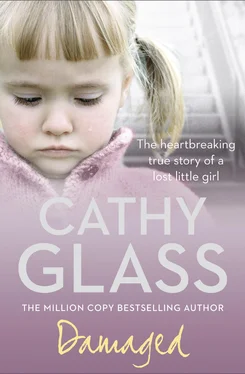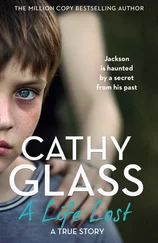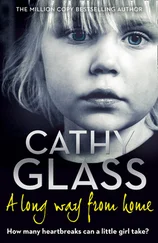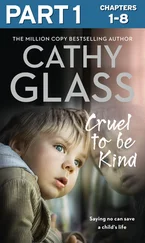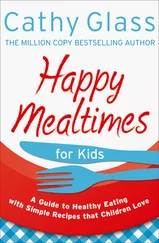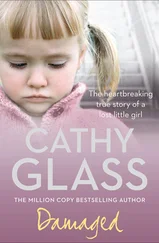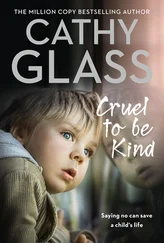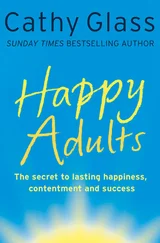Nevertheless, almost all my fostering experiences have been good ones, and the child has left our home in a better place than when they arrived.
As I drove home from the meeting at Social Services that day having agreed to take on Jodie, I knew that this child might be more of a handful than most, and wondered how best to tell the children about our new addition. They wouldn’t be best pleased. We’d had children before with ‘challenging behaviour’, so they knew what was in store. I thought of Lucy, who’d been with us for nearly two years, and was very well settled. I hoped Jodie’s disturbed outbursts wouldn’t set her back. Adrian, at seventeen, kept pretty much to himself, unless there was a crisis, or he couldn’t find his shirt in the morning. It was Paula I was most worried about. She was a sensitive, nervous child, and even though Jodie was five years younger than her, there was a risk she could be intimidated. Emotionally damaged children can wreak havoc in a family, even a well-integrated one. My children had always reacted well to the other children who had joined our family, even though we’d had a few rocky times, and I had no reason to think that this time would be any different.
I suspected the children wouldn’t be surprised by my news. It had been a few weeks since our last foster child had left, so it was time for a new challenge. I usually took a break of a couple of weeks between placements, to refresh myself mentally and physically, and give everyone time to regroup. I also needed to recover from the sadness of saying goodbye to someone I’d become close to; even when a child leaves on a high note, having made excellent progress and perhaps returning home to parents who are now able to provide a loving and caring environment, there is still a period when I mourn their going. It’s a mini-bereavement and something I have never got used to even though, a week or two later, I’d be revved up and ready to go again.
I decided to raise the subject of Jodie over dinner, which was where most of our discussions took place. Although I consider myself liberal, I do insist that the family eat together in the evenings and at weekends, as it’s the only part of the day when we’re all together.
For dinner that night I served shepherd’s pie, which was the children’s favourite. As they tucked in, I adjusted my voice to a light and relaxed tone.
‘You remember I mentioned I was going to a pre-placement meeting today?’ I said, aware they probably wouldn’t remember, because no one had been listening when I’d said it. ‘They told me all about a little girl who needs a home. Well, I’ve agreed to take her. She’s called Jodie and she’s eight.’
I glanced round the table for a reaction, but there was barely a flicker. They were busy eating. Even so, I knew they were listening.
‘I’m afraid she’s had a rough start and a lot of moves, so she’s very unsettled. She’s had a terrible home life and she’s already had some foster carers. Now they’re thinking of sending her to a residential unit if they can’t find someone to take her in, and you can imagine how horrible that would be for her. You know – a children’s home,’ I added, labouring the point.
Lucy and Paula looked up, and I smiled bravely.
‘Like me,’ said Lucy innocently. She had moved around a lot before she finally settled down with us, so she knew all about the disruption of moving.
‘No. Your moves were because of your relatives not being able to look after you. It had nothing to do with your behaviour.’ I paused, wondering if the discreet message had been picked up. It had.
‘What’s she done?’ Adrian growled, in his newly developed masculine voice.
‘Well, she has tantrums, and breaks things when she’s upset. But she’s still young, and I’m sure if we all pull together we’ll be able to turn her around.’
‘Is she seeing her mum?’ asked Paula, her eyes wide, imagining what for her would be the worst-case scenario: a child not seeing her mother.
‘Yes, and her dad. It will be supervised contact twice a week at the Social Services.’
‘When is she coming?’ asked Lucy.
‘Tomorrow morning.’
They all glanced at me and then at each other. Tomorrow there would be a new member of the family and, from the sounds of it, not an easy one either. I knew it must be unsettling.
‘Don’t worry,’ I reassured them. ‘I’m sure she’ll be fine.’ I realized I’d better be quick, as once dinner was over they’d vanish to their rooms, so I cut straight to the chase and reminded them of the ‘safer caring’ rules that were always in place when a new foster child arrived. ‘Now, remember, there are a lot of unknowns here, so you need to be careful for your own protection. If she wants you to play, it’s down here, not upstairs, and Adrian, don’t go into her room, even if she asks you to open a window. If there’s anything like that, call me or one of the girls. And remember, no physical-contact games like piggy back until we know more. And, obviously, don’t let her in your room, OK?’
‘Yes, Mum,’ he groaned, looking even more uncomfortably adolescent. He’d heard it all before, of course. There are standard codes of practice that apply in the homes of all foster carers, and my lot were well aware of how to behave. But Adrian could sometimes be too trusting for his own good.
‘And obviously, all of you,’ I said, addressing the three of them, ‘let me know if she confides anything about her past that gives you cause for concern. She’ll probably forge a relationship with you before she does with me.’
They all nodded. I decided that that was enough. They’d got the general picture, and they were pretty clued up. The children of foster carers tend to grow up quickly, as a result of the issues and challenges they’re exposed to. But not as quickly as the fostered children themselves, whose childhoods have often been sacrificed on the pyre of daily survival.
After dinner, as expected, the children disappeared to their rooms and the peace of another quiet evening descended on the house. It had gone off as well as I could have expected and I felt pleased with their maturity and acceptance of the situation.
‘So far so good,’ I thought, as I loaded the dishwasher. Then I settled down myself to watch the television with no idea when I’d next have the opportunity.
Chapter Three The Arrival
It was a wet and cold spring day in April. Rain hammered on the windows as I prepared for Jodie’s arrival. She was due at midday, but I was sure she’d be early. I stood in what was to be her new bedroom, and tried to see it through the eyes of a child. Was it appealing and welcoming? I had pinned brightly coloured posters of animals to the walls, and bought a new duvet cover with a large print of a teddy bear on it. I’d also propped a few soft toys on the bed, although I was sure that Jodie, having been in care for a while, was likely to have already accumulated some possessions. The room looked bright and cheerful, the kind of place that an eight-year-old girl would like as her bedroom. All it needed now was its new resident.
I took a final look around, then came out and closed the door, satisfied I’d done my best. Continuing along the landing, I closed all the bedroom doors. When it came to showing her around, it would be important to make sure she understood privacy, and this would be easier if the ground rules had been established right from the start.
Downstairs, I filled the kettle and busied myself in the kitchen. It was going to be a hectic day, and even after all these years of fostering I was still nervous. The arrival of a new child is a big event for a foster family, perhaps as much as for the child herself. I hoped Jill would arrive early, so that the two of us could have a quiet chat and offer moral support before the big arrival.
Читать дальше
